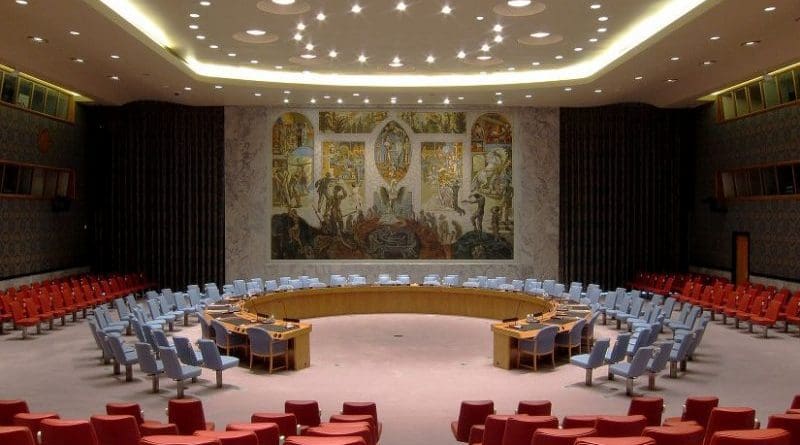UN Security Council Warns Libya To Stop, After Arms Embargo Breaches – OpEd
The United Nations Security Council called all countries to implement an arms embargo on Libya and to stay out of the conflict after U.N. sanctions monitors accused Jordan, the United Arab Emirates and Turkey of repeated violations.
These three countries routinely and sometimes blatantly supplied weapons with little effort to disguise the source. It is also likely to link the UAE to a bombing of a detention centre that has been described as a war crime.
UN already accused of overseeing a new age of impunity, they findings are a further test of the organization’s ability to enforce its own resolutions. In addition, the U.N. experts monitoring the implementation of sanctions on Libya reported last month said, ” Jordan, the United Arab Emirates and Turkey have repeatedly violated an arms embargo on Libya also the foreign attack aircraft is responsible for a deadly strike on a migrant detention center.
The U.N. missions of Jordan and Turkey did not immediately respond to a Reuters request for comment at the time on the accusations. According to that indictment the United Arab Emirates said it was “firmly committed to complying with its obligations under the Libya sanctions regime and all relevant Security Council resolutions.”
Ghassan Salame, the UN special envoy for Libya, said in Libya the arms embargo had been violated at least 45 times since 4 April when Haftar wants to occupy Tripoli by foreign powers in Libya – diplomatically and militarily – was now the biggest obstacle to peace in the country, and divisions in the UN security council meant the UN had been unable even to call for a ceasefire. Moreover, Haftar had sanctioned 800 drone strikes, and the Tripoli-based government more than 270.
On the other hand, the country responsible for a particularly egregious air assault on the Tajoura refugee detention centre on 2 July that led to 54 deaths, but it will make it clear the attack used weapons available only to a foreign power.
Salame mentioned, we hoped to address the issue of external intervention by convening a final round of pre-meetings that would lead to a Libyan peace conference in Berlin it will organized it on 2020, attended by the security council members plus Turkey, Italy, the UAE, Egypt and others.
The aims of the conference will be to extract a commitment from all the external actors not to interfere further and to set up a permanent international body to monitor and enforce the agreements reached in Berlin. after that the UN weapons experts’ report is produced annually and is subject to delays as member states wrangle about the contents.
In Libya they have two sides, the first one with UAE, Jordan, and Egypt has been arming troops deployed by Haftar, the eastern Libyan military leader, before the UN launched a carefully constructed peace conference. The second side, with Turkey that has been supplying weapons to Libya’s UN-recognised government of national accord.
The war had been stuck in a stalemate in Tripoli suburbs, the recent intervention of hundreds of Russian mercenaries had tipped the balance heavily towards Haftar. Russian intervention meant the war would spread to the centre of Tripoli, this will be leading to a bloodbath.
In addition, the Libyan foreign minister, Mohamed Syala, said there was a real risk that Tripoli would fall to the Russian-led forces, adding, “The problem is Russia declares one thing and then on the field does something else. Certainly, for Russia, Libya has strategic importance and seeks to have a foothold in the country.”
UN experts’ report was completed before the Russian intervention but does highlight the role of mercenaries from Sudan and elsewhere.

